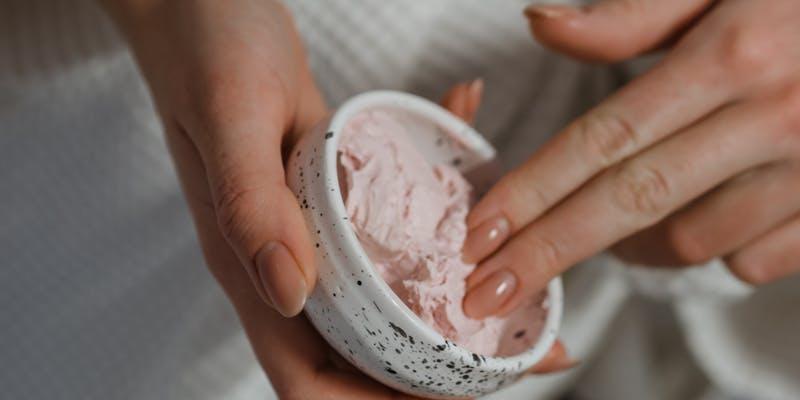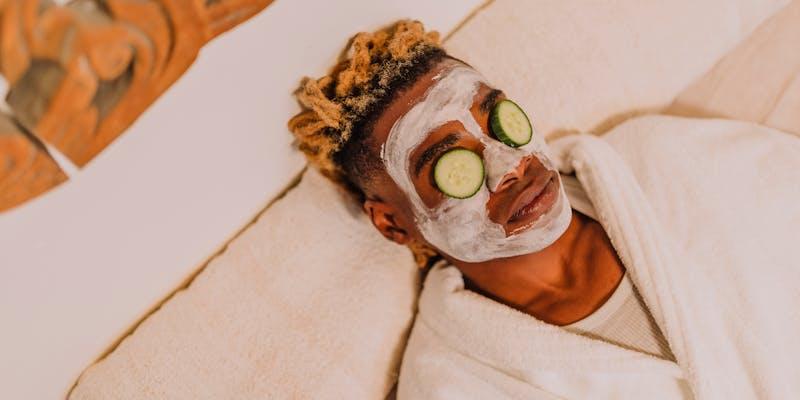No! Overnight Masks Are Not Your Moisturizers! Here's Why
Mar 17, 2024 By Madison Evans
Experts advise against using nighttime masks instead of moisturizers despite their advantages. Your overnight face mask may save skin when it needs extra TLC with thick textures and ultra-focused skincare benefits. Still, you can not permanently replace your night moisturizer with an overnight mask. You may sometimes use your nighttime mask as a moisturizer, but you shouldn't switch to a heavier product every night or leave it overnight.
Role of Moisturizers
The moisture surge overnight mask is tempting for intensive skincare effects but differs from moisturizers. Understanding the top moisturizing advantages reveals why you need a dedicated moisturizer in your skincare routine:
- Excellent moisturizers hydrate and protect the skin. Moisturizers minimize moisture loss and keep skin healthy. Healthy skin appears young and robust; thus, moisturizing also minimizes aging. Moisturizers prevent wrinkles and keep skin hydrated. Moisturizers reinforce the skin's natural barrier, preventing environmental damage and oxidative stress and restoring its young look.
- Despite common assumptions, moisturizing improves all skin types, even oily and acne-prone. A good moisturizer balances oil production and delivers lightweight hydration to reduce pore congestion and acne flare-ups and brighten skin.
- So, daily usage of a moisturizer with broad-spectrum SPF provides full sun protection, unlike certain nighttime masks. These SPF moisturizers protect skin from UVA and UVB radiation, preventing sunburn, photoaging, and sun damage.
Role of Overnight Masks

The temptation to replace your everyday moisturizer with a rich, ingredient-packed overnight mask every night is unwise. Masks are designed to treat certain skin conditions intensively. In contrast, nightly moisturizers hydrate and feed the skin throughout its natural healing cycle.
Overnight masks can target dullness, uneven texture, fine lines, and wrinkles. Leaving the mask on overnight gives the active components additional time to fix these flaws, resulting in visible benefits on the skin that needs extra nutrition. Also, overnight face masks provide a skin barrier to retain moisture and reduce trans-epidermal water loss. This keeps extremely dry skin moistened overnight, making it ideal for them. But do not use it over your skin unless it lacks moisture at a high level. Unlocking moisture on your normal face overnight can cause you real problems.
Optimal Sleeping Mask Usage
If you are still using an overnight mask, you should use them optimally. Skincare procedures must be balanced, especially when using sleeping masks. Sleeping mask frequency depends on skin type and condition to nourish without overdoing it. The appropriate sleeping mask ratio for different skin types is examined here:
Oily Skin
For people with oily or acne-prone skin, use a moisture surge overnight mask sparingly, limiting usage to 1-2 times per week. Sebum production in oily and acne-prone skin causes plugged pores and outbreaks. Such skin types may receive too many nutrients from sleeping masks, worsening oiliness and acne. Moderate sleeping mask use nourishes the skin without overburdening it, enabling it to breathe and sustain oil production.
Sensitive Skin
However, those with sensitive skin must use their overnight mask cautiously. With effective substances or widespread product use, sensitive skin is liable to irritation and unpleasant reactions. Use an overnight mask 12 times weekly for sensitive skin to nourish without damaging the barrier. This approach gives pores and skin nutrition without causing sensitivity or pain.
Dry Skin
Overnight masks are often used for dry skin to improve hydration and nutrition. Low moisture causes tightness, flakiness, and dullness in dry skin. Sleeping masks 23 times a week helps enhance skin texture and hydration. Sleeping masks should not be overused since product accumulation can cause pore congestion and skin concerns.
Potential Risks of Using Overnight Masks as Moisturizers

Over-Drying
The overnight face mask may over-dry the skin. Clay-based nighttime masks absorb excess oil and moisture from the skin. Leaving such masks on overnight may worsen this impact, causing severe dryness or discomfort. Clay masks as moisturizers can leave dry or sensitive skin feeling tight, unpleasant, or flaky.
Clogged Pores
An overnight mask as a moisturizer may clog pores. Many overnight masks have rich, emollient ingredients to hydrate and nourish the face fully. Unless completely removed in the morning, these chemicals may remain on the skin, clogging pores and trapping debris, grime, and germs. This might cause blackheads, whiteheads, or other acne in congested or acne-prone people. To reduce this danger and preserve clear, healthy skin, cleanse and remove mask residue.
Sensitivity and Allergies
Long-term use of the moisture surge overnight mask can also cause harm to sensitive pores and skin. Strong chemicals or scents in overnight masks can cause redness or pain if stored on for a long. Overnight masks trap warmness and moisture on the pores and skin, which can cause inflammation.
Overnight masks might include scents, preservatives, or plant extracts that activate allergic responses. Due to the extended exposure to these allergens, allergic dermatitis would possibly cause itching, redness, swelling, or rash while sporting the mask in a single day.
Damage to Skin-Barrier and Irritation
Overusing midnight masks as moisturizers may compromise the skin's barrier. The skin's barrier protects against environmental stresses, moisture loss, and infections. However, prolonged nightly mask utilization can break this barrier, leaving the pores and skin more susceptible to harm and irritation.
Overnight mask usage might pose additional dangers. Using these masks regularly may cause skin irritation, especially if they include harsh or allergic components. Continuous contact with such compounds can cause redness, irritation, or burning, affecting skin health and comfort.
Interference with Skin Renewal
Overnight masks soothe and hydrate, but some contain chemicals that slow skin regeneration. Exfoliating chemicals such as alpha hydroxy acids (AHAs) or retinoids may stimulate cell turnover too much in prolonged use. Choose sleeping masks with mild ingredients that assist skin rejuvenation.
Dependency on Products
This overnight face mask may cause moisturization dependency. The skin may produce less natural moisture after becoming used to nightly masks' strong hydration. This might cause the skin to feel dry without the mask, making it dependent on it.








